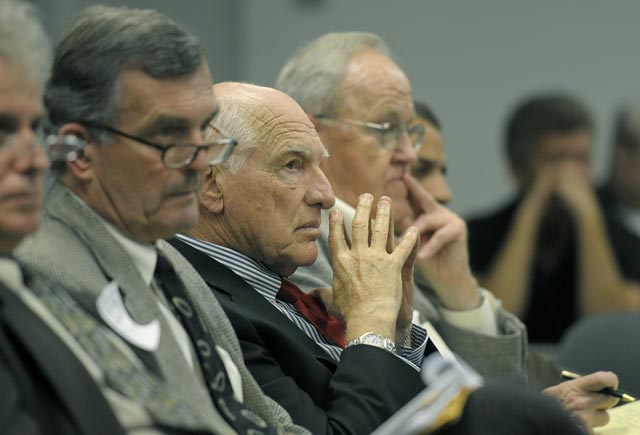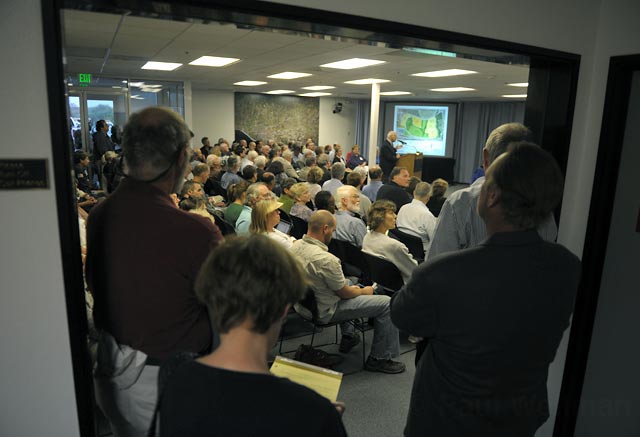Bishop Ranch ’Burbs Blocked
Goleta City Council Denies Request to Examine Development on 240 Acres of Open Space

The latest attempt to develop 240 acres of open space in the middle of Goleta met with total defeat on Tuesday night, as the Goleta City Council voted unanimously to deny studying whether Bishop Ranch should be rezoned from fallow farmland to a bustling suburbia.
“I don’t believe you should initiate unless you want to see something come out the other end,” said Mayor Margaret Connell before voting on the whether to study such a rezone, nearly four hours after the 6 p.m. meeting started. “And at this point, I don’t want to see something come out the other end.” The four other councilmembers agreed wholeheartedly, although most also realized that in a few years, the idea of building housing on the property might be worth considering. “We’re gonna go down this road again, sooner or later, with somebody,” explained councilmember Ed Easton.
The move was not surprising, as much of the Goleta community had come out against the notion of any building on the landscape, which hasn’t really been farmed for years despite being identified as agriculture since 1980. Tuesday’s hearing was attended by at least 150 people, and there were 69 speakers, of which 42 were against the rezoning proposal; an additional 21 people turned in comment slips, with 19 of those also opposed. That doesn’t count the 300-plus emails that councilmembers received on the topic, nor the dozens of speakers who commented at a previous meeting in August. Altogether, the input, explained Connell, has been “above and beyond anything we’ve seen on any issues in many, many years.”

Developer Michael Keston and his Bishop Ranch LLC team remained optimistic until the final vote, buoyed by business owners, residents, and affordable housing advocates who had spoken in favor of the idea and believing that a recent report showing the property to be not viable as farmland — due mostly to the high price of water, which the property owners had previously given away — might have changed the councilmembers’ minds. So they were disappointed by the vote, especially its unanimity. “It’s a loss-loss for the community,” said consultant Urban McLellan.
In Keston’s final comment before the vote, he used language to suggest that legal action may follow, arguing, “If your city council votes to deny the request…the applicant will have exhausted its total administrative remedies in the City of Goleta,” adding that the city would have effectively denied any viable economic use of the property. But at 10 p.m., a beaten McLellan wasn’t sure what was next, explaining, “We’re going to have to regroup.”
Of course, Bishop Ranch LLC already has a lawsuit against the city, one that was put on hold to allow the completion of this process. That suit alleges that the city made a number of mistakes when approving the general plan in 2006, and that developing Bishop Ranch would solve those problems. The city has maintained its position against those charges, and they did not, at least officially, have any bearing on Tuesday night’s decision, according to city attorney Tim Giles. “They’re independent actions,” he explained. But councilmember Easton’s comments did seem to echo a bit of legal defensiveness when he pointed out that the city had taken “no affirmative action to block agriculture.”
For the most part, though, the councilmembers showed no fear of the lingering lawsuit, as each spoke at length about why they were denying the study proposal. Echoing the concerns of many who want the property to be used as farmland, Connell explained, “In 10 to 20 years, we may be very glad if we have the possibility of food production and agriculture on Bishop Ranch.” But perhaps councilmember Michael Bennett summed up the sentiments of so many speakers best when he referred to seeing the Orange County of his youth paved over and explained, “When something’s gone, you’ve lost it forever.” Their vote was met with wide applause from those in the audience who stuck around until the end.



